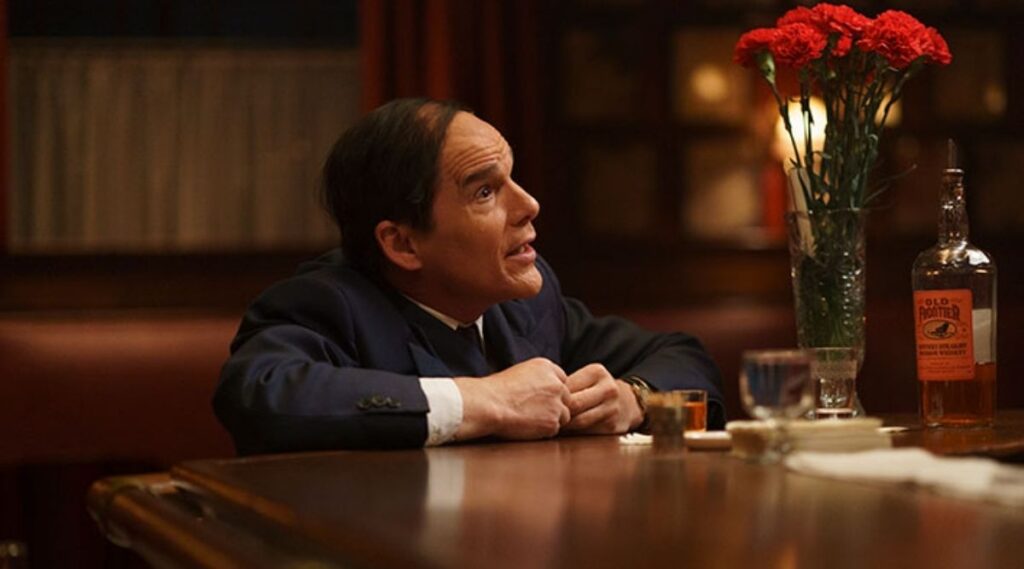Plenty of movies get described as feeling like a play. Blue Moon (2025) truly feels like a play, in the most exciting of ways., Directed by Richard Linklater and written by Robert Kaplow, Blue Moon is a biopic about Lorenz Hart (Ethan Hawke), the first and profound lyrical partner to the hallowed composer Richard Rodgers (Andrew Scott).
The movie finds Hart drinking in a bar on the night of the opening of Rodgers’ new musical with a new writing partner, Oscar Hammerstein II (Simon Delaney). Even on that opening night, everyone in attendance knew that this new musical, Oklahoma! would change the course of Broadway history.
No one knows it better than Hart himself. Hawke does a phenomenal job oscillating between jealousy over being replaced by his best friend and collaborator, awe at the sensational work that is Oklahoma!, and frustration over what he perceives as the world constantly letting him down.
Ethan Hawke is exceptional as Lorenz Hart in Blue Moon.
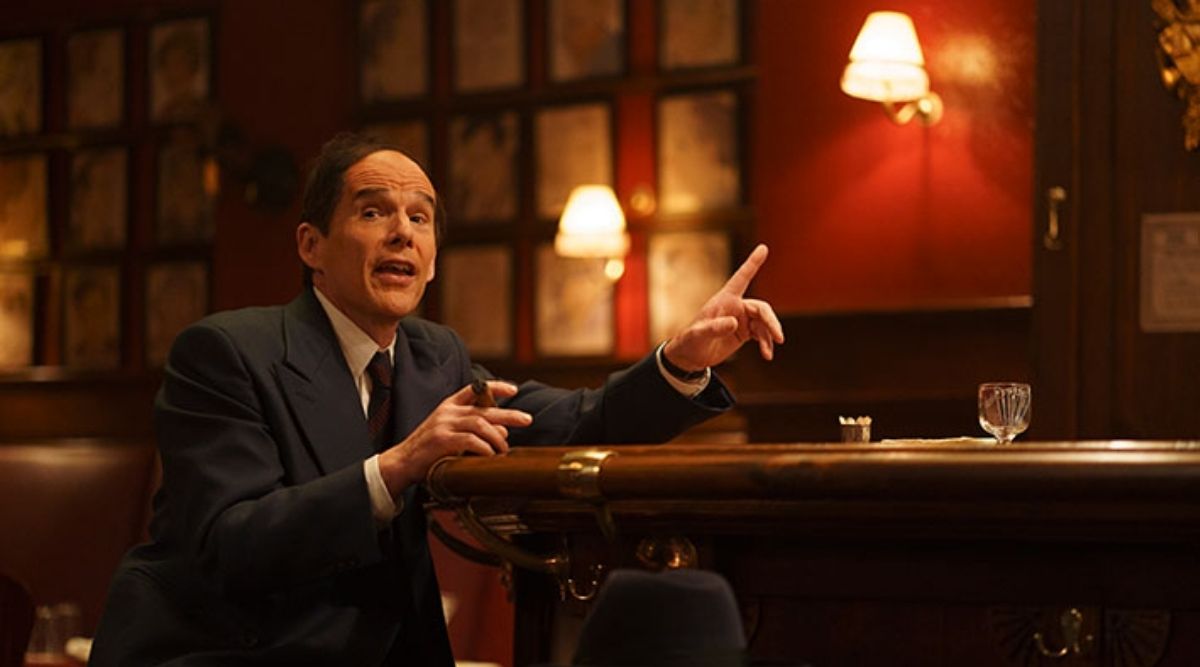
The usually tall and dashing actor makes himself diminutive and meek in the face of the man’s hardest day on Earth. Notably, Hart is always staged to look significantly shorter and smaller than the men around him. Yet, he remains a complete force on the screen at all times.
Blue Moon takes place almost entirely inside this one bar, floating around its limited space with its sparse characters, namely the barkeep Eddie (Bobby Cannavale), the pianist that Hart nicknames Knuckles (Jonah Lees), and the bar’s only other patron until the post-premiere party begins, writer E. B. White (Patrick Kennedy).
The tight quarters and small cast lend to the play-like feeling of the movie, as does the way the action takes place in one continuous thread without pause. But even more so, it’s the constant piano music providing a score from classic Broadway tunes that gives the movie an extra patina of Broadway itself.
The lack of Jewish actors playing Jewish characters is a bit distracting.
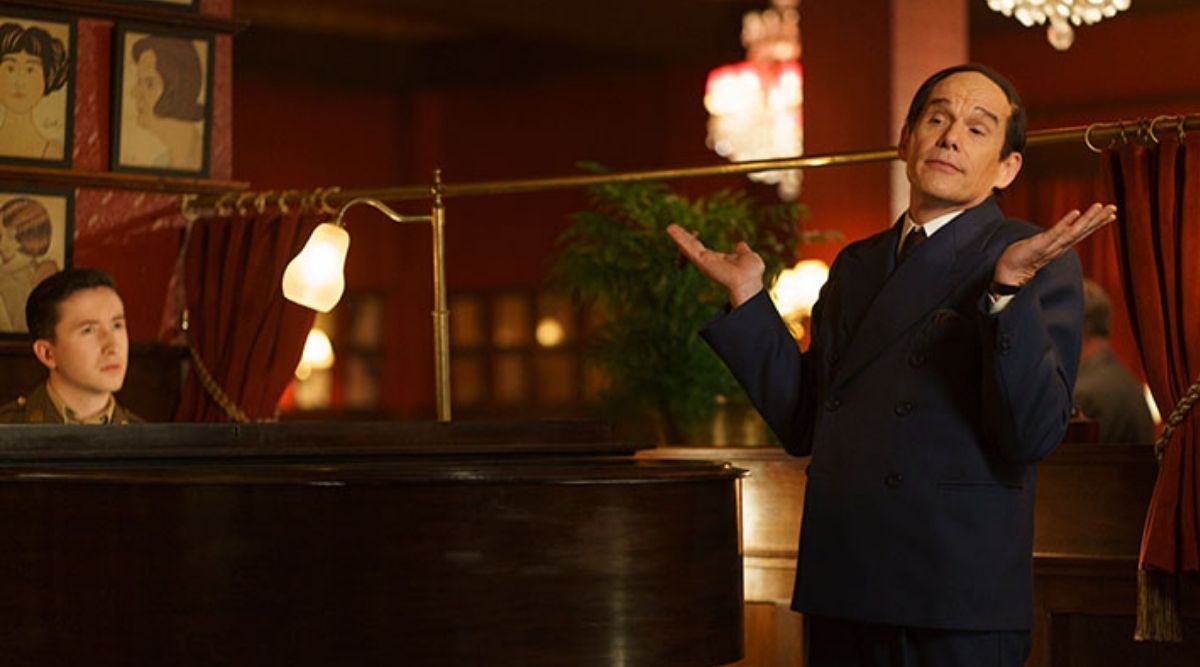
There is a bit of unnecessary cheesiness to Blue Moon. E. B. White is, of course, the future author of Stuart Little, and where does the man with writer’s block get his inspiration? From a conversation with Lorenz Hart, of course. And when Hart is introduced to an up-and-coming director named George, it’s pretty fair to assume the man’s last name is Hill and that he will grow up to direct Butch Cassidy and the Sundance Kid and The Sting.
It’s also somewhat distracting to watch a fully Irish cast play explicitly Jewish roles in this movie. Hart, Rodgers, and Hammerstein are each famously and very obviously Jewish. Blue Moon makes repeated reference to this fact, from stories of Bar Mitzvahs to the Yiddish terminology they throw around regularly. It always feels inauthentic coming from these actors’ mouths, unfortunately.
However, while likely incidental, the way the actors’ unfamiliarity with it masks their Jewishness lends itself decently to one of the movie’s undercurrents about Oklahoma!’s place in the history of Jewish assimilation in the early 20th century. It’s one of Hart’s points of contention with his former partner: what does this Jewish pair of musicians from New York City know of the white-bread American heartland?
Rodgers and Hart’s relationship is a major centerpiece for Blue Moon’s success.
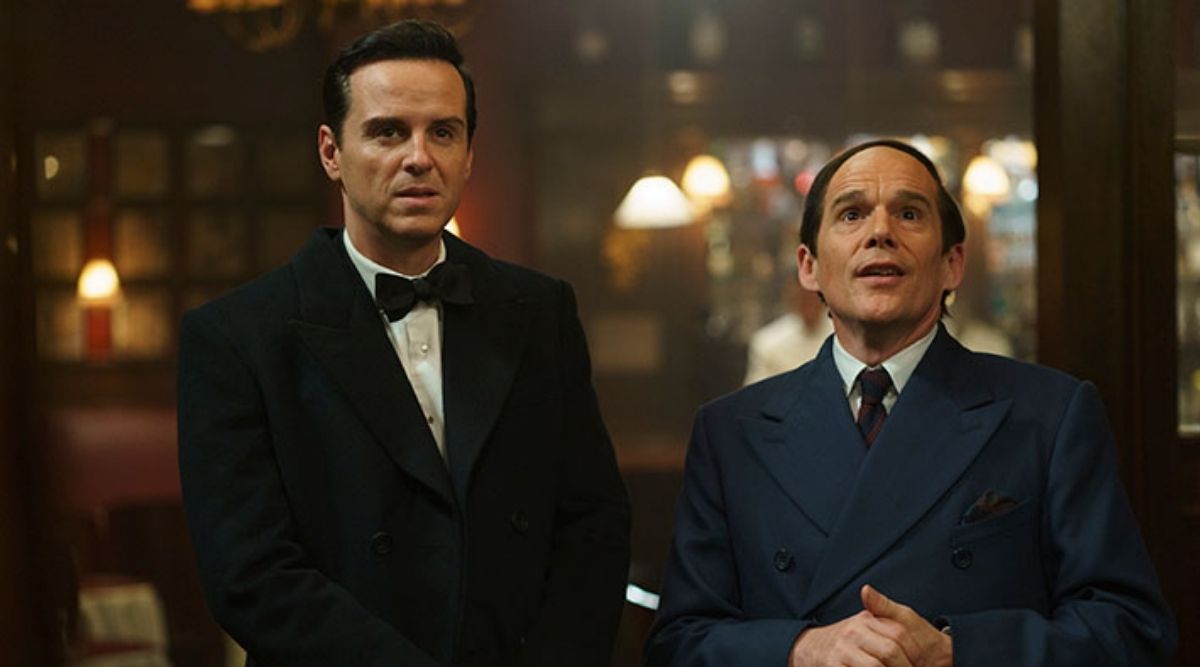
This poetic battle is one of Blue Moon’s high points. Hart is clinging desperately to something old he had between Rodgers and himself. Rodgers wants to grow into something new with Hammerstein. He’s willing to take Hart along with him into the future, offering his old partner the opportunity to rewrite one of their original hits for a modern audience.
But Hart is too stuck in his nostalgia for a past, an audience, a country that no longer exists in this mid-war era. Assimilation, for Jews and for many of New York’s ethnic enclaves, is becoming an imperative. As is assimilation into the modernity of musical theater.
Nevertheless, the relationship between Hart and Rodgers is fascinating and deftly acted. Rodgers at once pities his old friend for his station and his addictions, loves him as dearly as he ever has, and wants so badly to be able to leave him behind.
Margaret Qualley plays well off of Ethan Hawke’s frantic, sincere energy with ravishing vagueness.
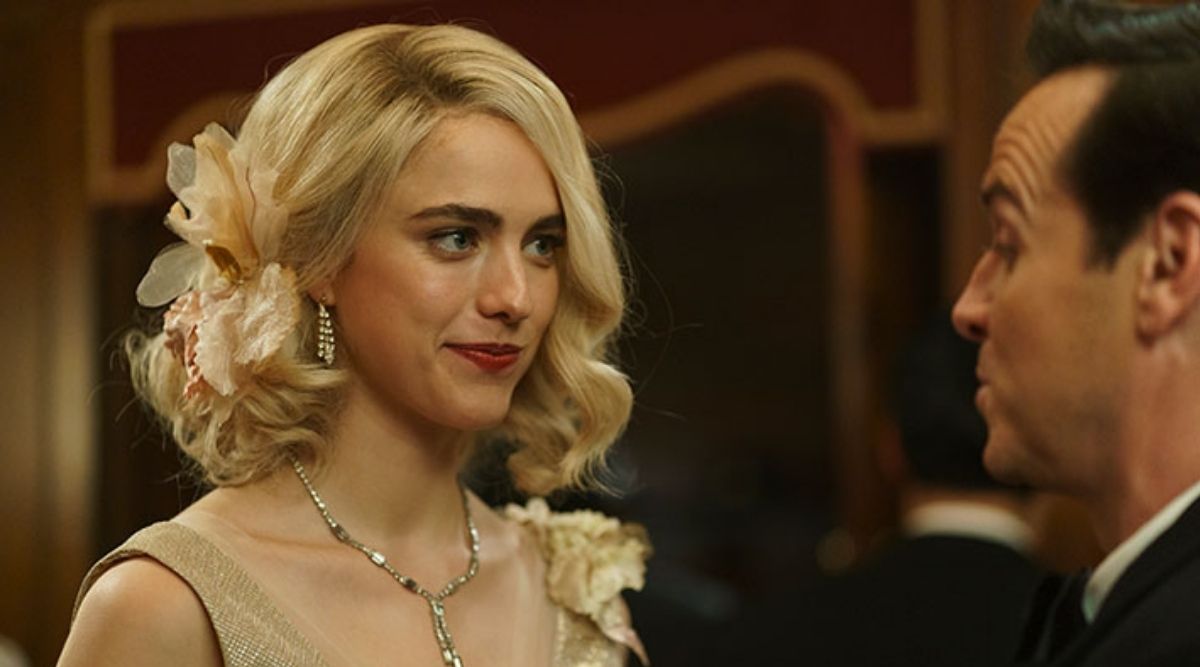
Ironically, for as much as Hart is stuck in the past, he’s also a man more of the future than anybody else in the room that night. He talks openly of his bisexuality without fear of recourse, and he pines desperately after a Yale student, Elizabeth Weiland (Margaret Qualley). Hart spends the whole night talking to Eddie and Knuckles about his love of Weiland and his intention to finally court her that evening, but he, of course, hardly has the courage or attention span to do so.
Qualley does a swell job portraying a woman intellectually on par with Hart and his mile-a-minute gabbing about art and philosophy. But she never quite reveals her true feelings for Hart. Is she as enamoured with him as he is with her, or is she playing him a fool? In part, this is the Margaret Qualley style of acting in a nutshell, but regardless, it is well-affected in Blue Moon. She plays off of Ethan Hawke’s frantic, sincere energy with ravishing vagueness.
Blue Moon is as strong a character study as it is a feat of writing and directing.
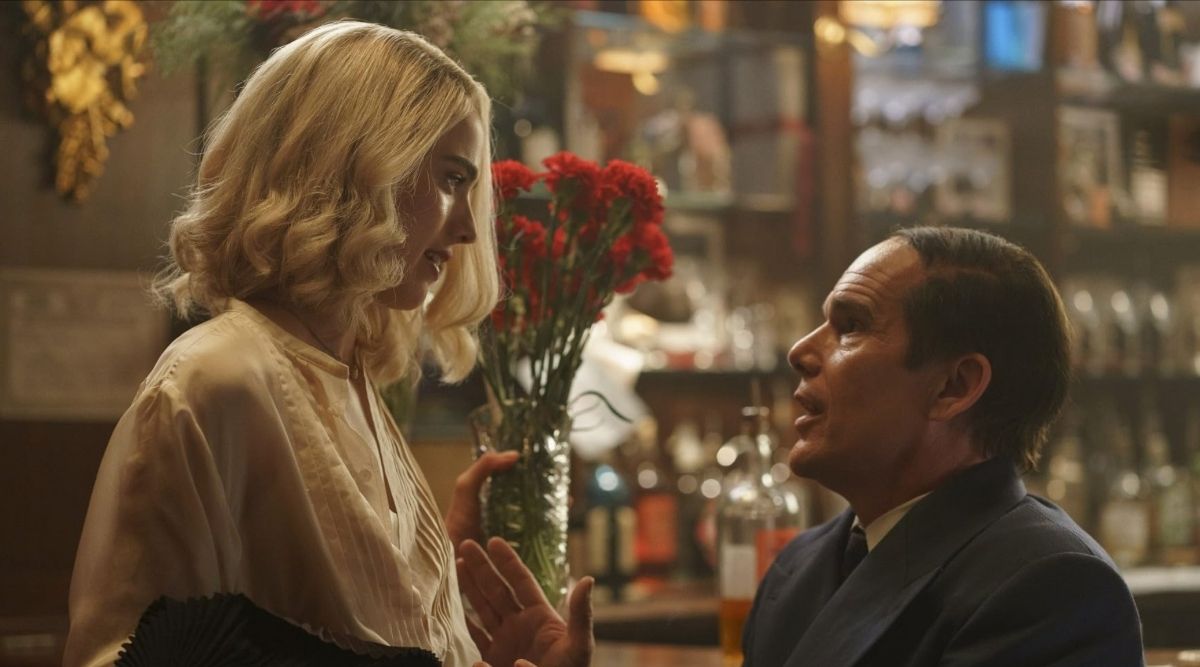
Blue Moon is a strong character study of a man who was, ultimately, largely lost to history. ‘Rodgers and Hammerstein’ comes to the tongue far sooner than ‘Rodgers and Hart’ ever does, despite their 25 years of collaboration together. This reality compounds the depth of the interplay between the two friends and former partners, as well as the battle for recognition in all aspects of life that Hart desperately seeks.
Frantic and layered, Blue Moon is as strong an acting display as it is a feat of writing and directing. With so many fascinating points to explore, it’s a movie that will only grow upon multiple viewings.
Blue Moon (2025) is in select theaters October 17th and theaters everywhere October 24th.
Blue Moon (2025)
-
Rating - 8/108/10
TL;DR
Frantic and layered, Blue Moon (2025) is as strong an acting display as it is a feat of writing and directing. With so many fascinating points to explore, it’s a movie that will only grow upon multiple viewings.

